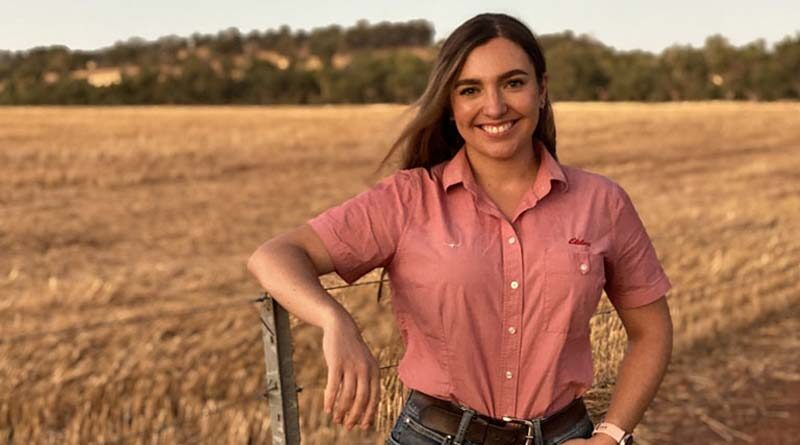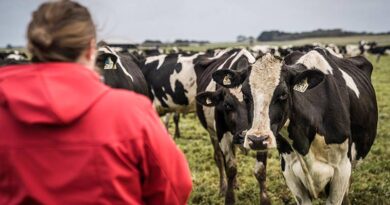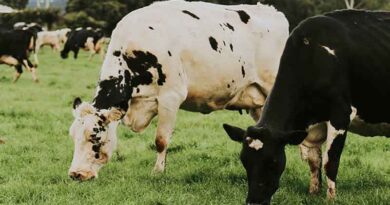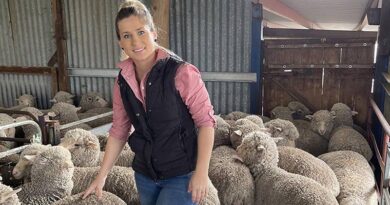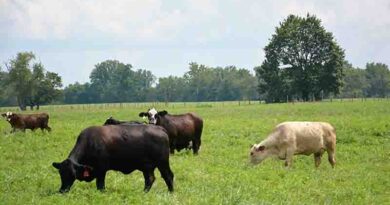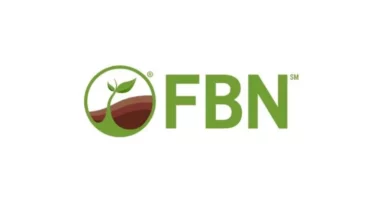Australia: Opportunities abound for the next generation in agriculture
20 June 2022, Australia: As a southwest Western Australian local, Georgia Adams has spent her life amongst livestock. She has fond memories of helping her dad on their mixed farming property and says that farming seemed like a dream job to her – one that has since become a reality after taking on her role in livestock production with Elders Williams.
“I grew up in the southwest of WA around cattle and dairy country, but the real fun for me was heading out east to our small farm in the wheatbelt. It was always a treat to help Dad with the sheep and cropping. They are some of my fondest childhood memories,” says Georgia.
“I was always interested in science, and after travelling when I left school and seeing ag systems in different countries, it made me realise, it was exactly right for me.
“The honest day’s work, the drive and determination of the people in the industry, as well as the challenge it posed. It motivated me to get involved and work to offer value to producers.”
After a short stint in Farm Supplies, Georgia quickly realised that livestock production was her niche, and that helping producers to improve their productivity was an ambition that had impacts far beyond just the farm she was working on.
“There is an enormous amount of pressure placed on the agricultural industry to increase production to meet the demands of a growing population. Australian growers are already efficient producers, but this will need to improve to meet such growing demand,” says Georgia.
“We need to take a systems approach to improving productivity – considering the production, environmental and social issues that surround food production.
“Using new technologies to improve efficiency, maintaining social licenses, and investing in new careers to drive innovation will all be essential to improving current productivity.”
Georgia references the use of electronic identification (EID) which has had huge impacts on producers to manage disease and parasites, which costs the Australian sheep industry $430 million annually1, and directly impacts productivity.
“Technologies such as electronic ear tagging helps to identify, monitor, and quarantine disease and parasite burdens and minimise its impact on production. In the wheatbelt region of WA there is already a growing market for EID tags and the results speak for themselves when the technologies are utilised,” says Georgia.
Beyond her passion for helping her clients improve their productivity, Georgia says she is most excited to see the new – increasingly female – generation emerge within the industry.
“The opportunities available to those in the industry are incredible and only growing – and I believe that the industry is becoming increasingly female as a result,” she says.
“There are so many new branches of industry opening due to the need for new innovations and it appeals to a wider audience now than it did decades ago. An example within Elders is the appointment of Livestock Production Sales Representatives regionally to offer specialised advice to producers and staff and to aid in increasing livestock productivity.”
Demand for labour is a pressing issue in the agriculture industry, creating significant opportunities for qualified individuals, specialists, marketing and sales experts, and skilled professionals to contribute to the industry, as farmers look to get more from their land. Georgia says that this makes the agriculture only more promising and exciting to be a part of.
“The generation coming through offer new insights, modernised education of new technologies such as robotics, IT, and engineering related to agriculture which will aid in the utilisation of new technologies and improved traditional practises,” she says.
“The rate of change in agriculture demands a lot of the generation coming through but the opportunities for innovations are limitless.”

